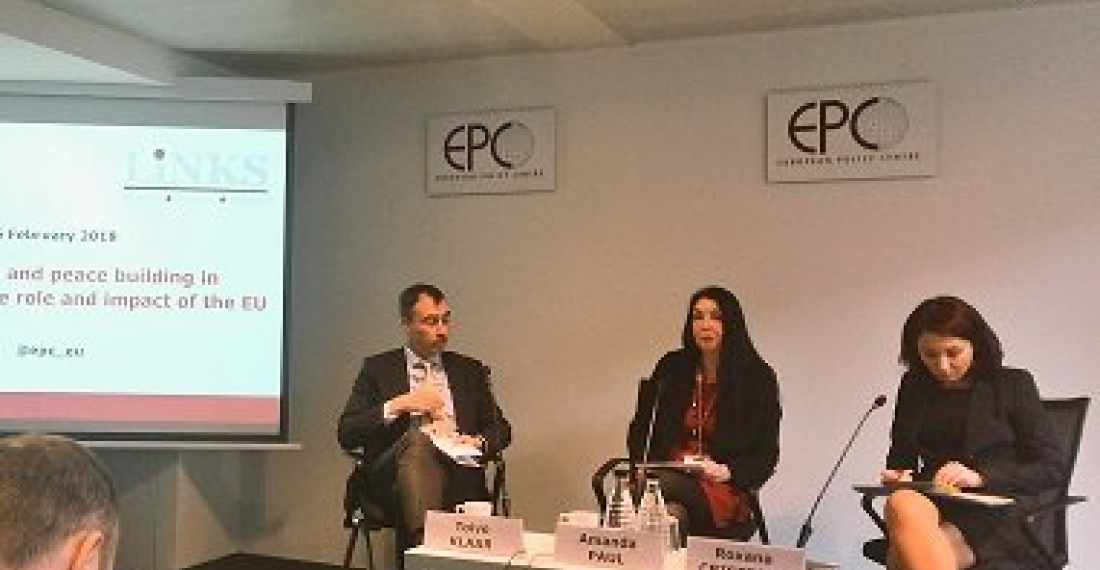"The European Union has a fundamental interest in the Nagorno-Karabakh conflict. We want good relations with both Armenia and Azerbaijan and have agreements with both. We want to make a constructive contribution to the resolution of the conflict........But one cannot separate the issue of status from that of technical support in the conflict zone. This can only be done when the co-chair of the Minsk process, and the two sides in the conflict, agree that it is time to do so. Until then I don't see the EU stepping sideways". This was stated by the European Union Special Representative for the South Caucasus, Toivo Klaar, when addressing a Policy Dialogue in Brussels on Monday, 26 February.
The policy dialogue with the theme "Conflict resolution and peace building in the South Caucasus: the role and impact of the EU" was organised by the European Policy Centre and LINKS (Dialogue, Analysis and Research), and was chaired by Amanda Paul.
Klaar said that the unresolved conflicts have a negative impact on the region - in security terms, in the economic sphere and in the overall development of the region. He said that some international actors seem to think they can benefit from the present situation, by for example selling weapons. The European Union is involved in the resolution of the conflicts in the region in different ways. In the Nagorno-Karabakh conflict, the EU supports the efforts of the Minsk Group, and engages with the sides to push important messages, such as the need to reduce tensions, support negotiations and encourage people to people contacts. In an increasingly polorised situation the EU intentionally puts more focus on civil society and values. Since 2009, the EU's EPNK programme has sought to widen the engagement of vulnerable stakeholders to issues related to the peace process.
Klaar also addressed the EU's engagement with the conflicts in Georgia. The EU brokered the 2008 cease fire, but has a fundamental disagreement with Russia on how to move forward. There is no peace plan. But the Geneva international talks are important for managing the conflict. The EU has a number of tools in dealing with the conflicts in Georgia, such as the EUMM, but its biggest contribution should be pushing values such as Human rights, the rule of law, market economy and developing regional connections. The EU has pulling power, and sometimes it does not make full use of it, Klaar said.
Another speaker in the policy dialogue was Roxana Cristescu from Conflict Managment Initiative (CMI). She said that people in the region have very high expectations of what the EU and other international organisations can do to resolve the conflict. In fact most of the tools available to the international community are for managing the conflicts rather than solving them. Civil society organisations are involved in keeping lines of communication open. In order to move to conflict transformation there must be a more long-term approach with broader participation. She said that peace processes pass through three phases: cease fire, negotiations and implementation. Refering to the role of the EU, Cristescu said that the role of the EU Special Representative should not be underestimated, especially by working in a regional framework. She highlighted the fact that the conflicts have evolved in a wider regional context, and the role of the EU is impacted by the wider relations between the EU and Russia.
source: commonspace.eu
photo: Speakers at the EPC-LINKS policy dialogue held in Brussels on 26 February 2018 (picture courtesy of the EPC twitter feed, @EPC_EU






